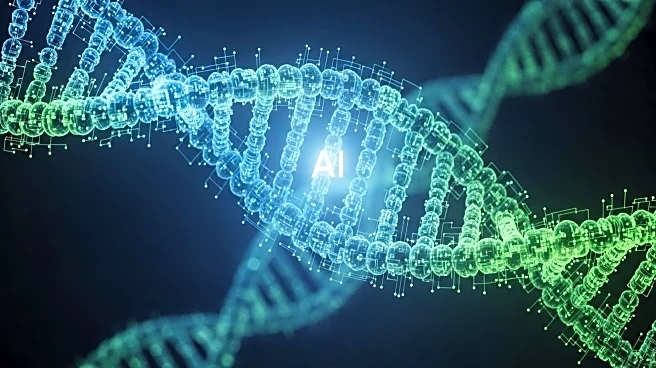What is the story about?
What's Happening?
The life sciences industry is increasingly prioritizing the development of an AI-ready workforce to keep pace with rapid technological advancements. Companies are moving beyond traditional training methods, establishing internal AI academies and mentorship models to foster continuous learning and integration of AI skills. This approach aims to bridge the gap between casual AI use and effective application in professional settings. The focus is on developing hybrid skills that combine data science with other disciplines such as microbiology, psychology, and law. This shift is driven by the need for professionals who can navigate the complexities of AI systems, ensuring they are used effectively and ethically in various life sciences applications.
Why It's Important?
The integration of AI into the life sciences sector is crucial for maintaining competitiveness and innovation. By developing a workforce that is proficient in AI, companies can enhance their operational efficiency, improve research outcomes, and drive new product development. This shift also addresses the growing demand for roles that require a combination of technical and domain-specific expertise. As AI continues to transform the industry, organizations that invest in comprehensive training and skill development are likely to gain a competitive edge. This approach not only benefits the companies but also contributes to the broader industry by setting new standards for AI literacy and application.
What's Next?
As life sciences companies continue to integrate AI into their operations, the focus will likely expand to include more specialized training programs and partnerships with educational institutions. This could lead to the development of new curricula that emphasize AI literacy and its application in life sciences. Additionally, companies may explore collaborations with technology firms to access cutting-edge AI tools and resources. The ongoing evolution of AI technologies will necessitate regular updates to training programs, ensuring that employees remain equipped with the latest skills and knowledge. This continuous learning approach will be essential for adapting to future technological advancements and maintaining industry leadership.
Beyond the Headlines
The emphasis on AI readiness in the life sciences sector highlights broader ethical and cultural considerations. As AI systems become more integrated into decision-making processes, there is a growing need to address issues of bias, transparency, and accountability. Companies must ensure that their AI applications are aligned with ethical standards and societal values. This includes developing frameworks for evaluating AI outputs and implementing safeguards to prevent misuse. The cultural shift towards embracing AI also requires fostering an environment that encourages experimentation and innovation, while being mindful of the potential impacts on the workforce and society at large.

















